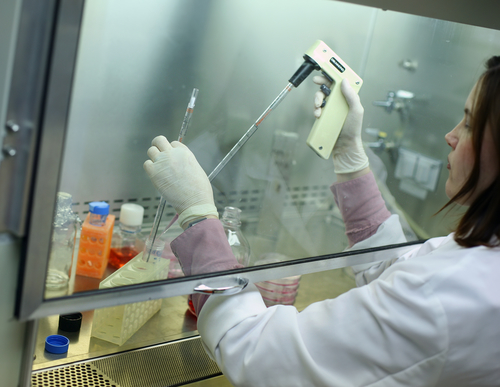Clinical trials are extremely important scientific studies, needed and required by the U.S. Food and Drug Administration (FDA) to assess new medical treatments, including treatments for prostate cancer. Participating in a clinical trial can offer benefits to people with the disease. Read more about the possible pros and cons of clinical trial participation here.
Access to New Treatments
There are several reasons you may want to participate in a clinical trial. One is to gain access to a treatment that is not otherwise available. The treatment may be better than those already approved for the condition. Treatments can include new medications, medication combinations, stem cell treatments, or surgeries. New biological approaches, such as reducing cancer cell growth or preventing tumors from spreading, are under study for prostate cancer. Treatments also may focus on improving a patient’s general care and quality of life. Before participating in a trial, you need to understand the study, what it requires and what it entails. The study will be thoroughly explained in its “Informed Consent” document and by the researchers conducting it.
Access to Expert Medical Care
By participating in a clinical trial, you can expect to gain access to medical experts in the field at a leading healthcare facility, in addition to access to the treatment provided.
Free Treatment or Reduced Costs
Treatments in clinical trials are typically free to participants, or the trial may be associated with reduced costs. Sometimes continued treatment is free even after the trial ends, or in a study extension phase. The costs or reduction of costs are described in the “Informed Consent” document, and should be a topic to discuss with the study’s organizers before a trial begins.
Helping Advance Science, Helping Others
Clinical trials help to advance science and, generally, help other people with the medical condition being studied. They may help with making a new treatment available, or improve a general understanding of the disease. People with prostate cancer can participate in trials, but healthy people are also often eligible to test out a new treatment, typically in the early stages of a clinical trial.
Despite successes in treatment, prostate cancer can still be deadly. In 2016, an estimated 26,120 people in the U.S. will die from prostate cancer. Although current treatments have reduced such deaths and improved survival, better therapies are greatly needed. Clinical trials are a necessary and required mechanism for testing and approving new treatments, so that they can be available for those who need them. As such, clinical trials are essential to advance prostate cancer research and treatment.
They offer hope for people with the malignancy that better treatments will become available.
Other Benefits of Clinical Trials
Other incentives may also be available to those who participate in a clinical trial. Participants may receive limited reimbursement, such as for travel expenses, or they may receive benefits like counseling or educational materials. These benefits are also detailed in the “Informed Consent” document given to participants before the trial starts.
Risks of Participation
A risk could be that the treatment being tested is not better than one already available, or has side effects. Note, however, that side effects are carefully monitored by researchers throughout a clinical trial. Safety is a very important consideration, and the safety of a treatment is thoroughly tested in pre-clinical studies before that treatment is used in humans.
It is also possible that, instead of receiving the treatment, you will be placed in the trial’s comparison arm and receive a standard treatment rather than the one under study. Placebo comparators are typically not used in cancer clinical trials, unless it has been determined that the individuals in the placebo group will not receive substantially worse care and worse outcomes than those in the group receiving the experimental treatment. A placebo is a fake treatment, such as a sugar pill.
Even if you are assigned to the comparator group, the study investigators are required to assure that you receive optimal care and your participation helps to advance the understanding and treatment of prostate cancer. In some studies, the comparator group will receive the experimental treatment after the study ends, or in an extension study. You can discuss with the study coordinators whether or not the experimental treatment will eventually be made available to the comparator group.
Participation in a clinical trial could also involve more trips to the medical facility, and more travel than is usual with standard treatment.
Deciding Whether or Not to Enroll
The decision to enroll in a clinical trial should involve a discussion between the person with prostate cancer and that individual’s physician. Participation in a trial will depend on many factors, including the motivation for enrolling in a trial, the trials available, and the stage of a person’s prostate cancer.
Note: Prostate Cancer News Today is strictly a news and information website about the disease. It does not provide medical advice, diagnosis, or treatment. This content is not intended to be a substitute for professional medical advice, diagnosis, or treatment. Always seek the advice of your physician or other qualified health provider with any questions you may have regarding a medical condition. Never disregard professional medical advice or delay in seeking it because of something you have read on this website.

